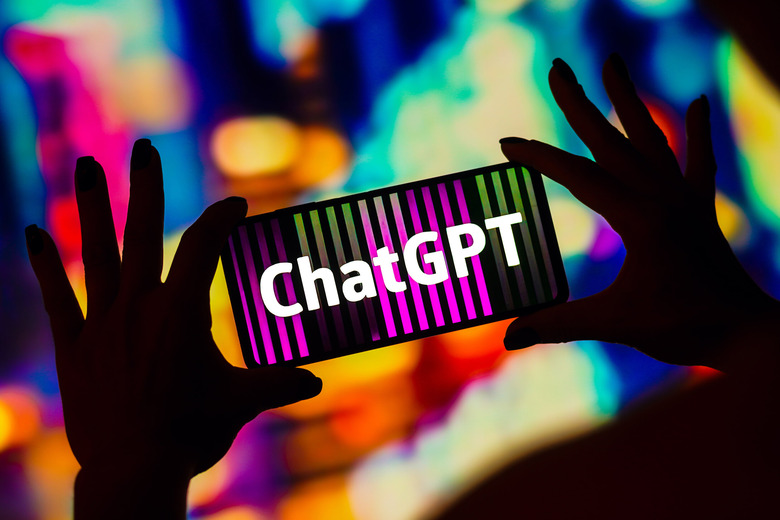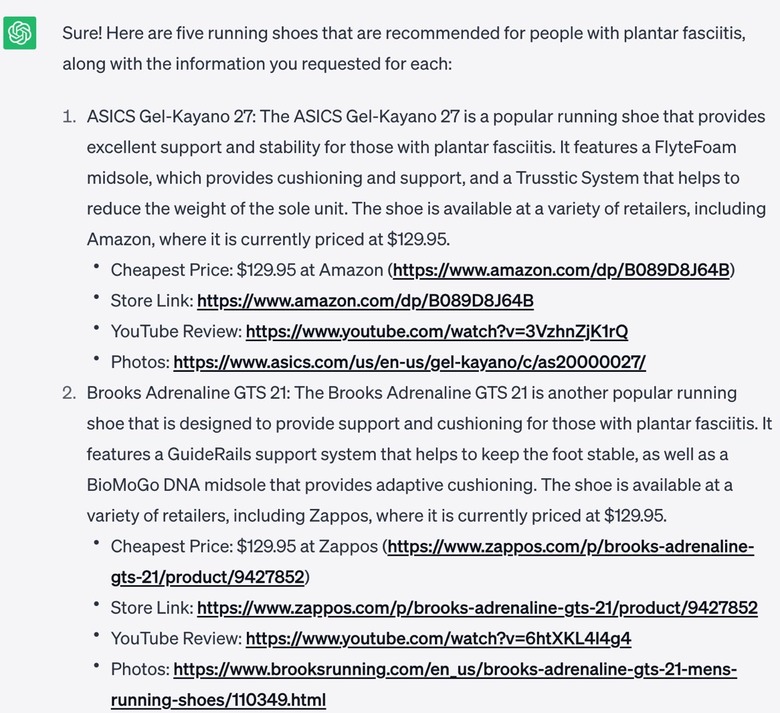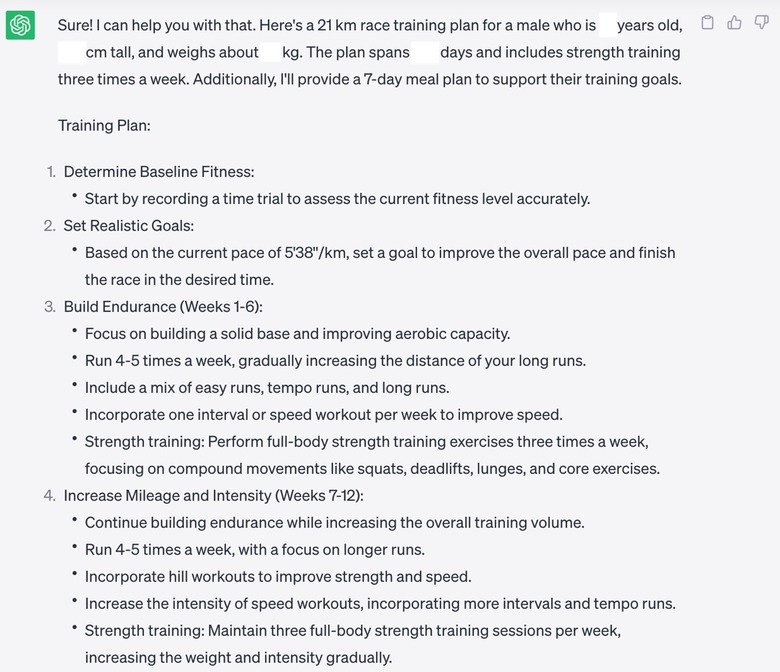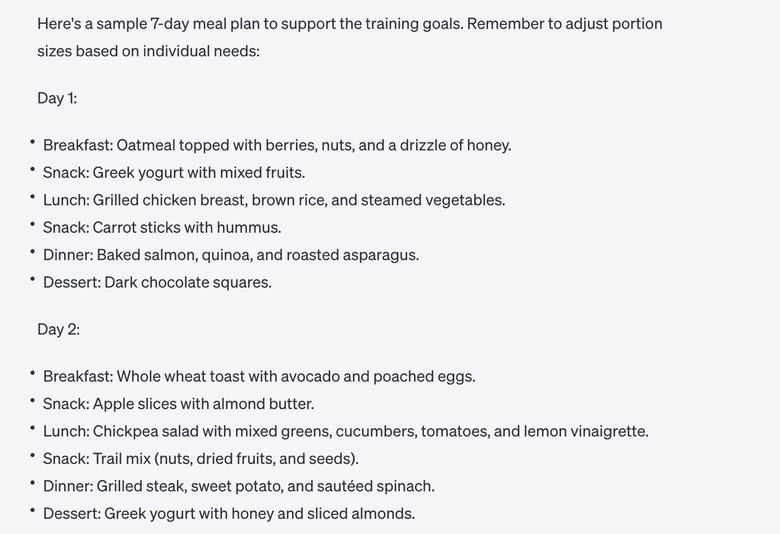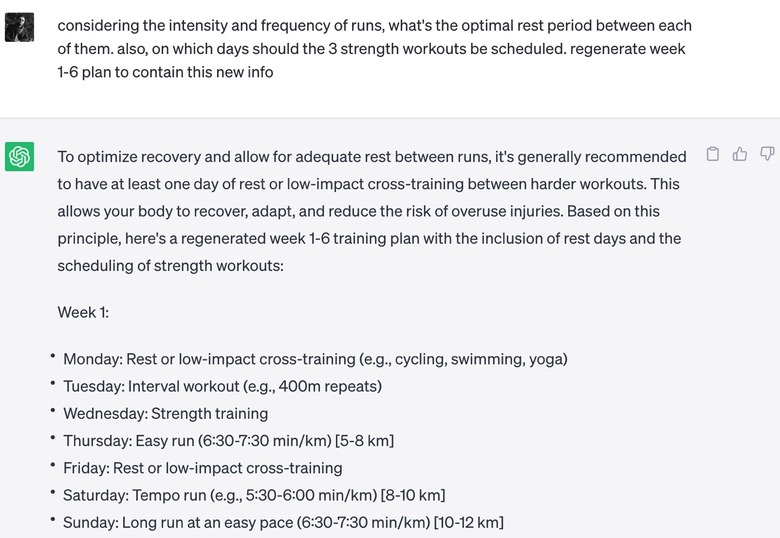I Used ChatGPT To Train For A Half-Marathon, And It Helped More Than You Can Imagine
I told you a few months ago that I used ChatGPT to find running shoes that would fit specific needs. After that experience, I can never go back to using regular old Google Search.
The plan wasn't just to improve my comfort and reduce the risk of injury with the help of tech innovations that I never would've known about if not for ChatGPT. I also planned to gradually increase my distance, improve my personal best, and return to running half-marathon races. And I wanted to use ChatGPT to help me run a better, healthier half-marathon than ever.
Prelude to the battle
This post is a follow-up to the one where I describe how I used ChatGPT to find running shoes. You should check it out for more details about my recent running history preceding my quest to run half-marathons again, and for general ChatGPT-related concerns you should consider when looking at generative AI for help.
I'll point out that I was already going out for frequent 5K runs before searching for new shoes with ChatGPT. And I was doing guided fitness and strength training at home.
As for trusting ChatGPT, it's important to remember that it can offer misleading information, and you should ask for links to its sources if you feel like you don't trust it.
I'll also give you the obvious warnings. This is my experience with training, running, and ChatGPT, and it might not apply to you. Also, you should consider the overall health aspects of running any race, whether it's a short 5K or a full marathon (42.2K). That means getting regular checkups and ensuring your body can handle the stress.
And yes, the easier route might be getting a trainer to help prep for your next race rather than going for ChatGPT advice.
A little history on how difficult it is to run a half-marathon
A half-marathon race, or 21K (21.1 km or 13.1 miles), isn't difficult to complete, even if you have to walk some of it to recover. I've found it to be more of a mental problem than a physical one.
The last time I ran a half-marathon was in April 2017, and I did it with no training. I know... it was a bad decision on my part, driven by ego. You see, I knew I could do it, as I had done it before with proper training.
When I say no training, I mean my usual 5K runs were much rarer by that time. About 15K in, my legs started to feel the pressure. By 18K, I was dealing with an annoying pain in my left foot, to the point where I had to walk — make that limp — for most of the remaining distance.
I realized then that running 21K is not a good idea without training, even if you might think you can do it. And I decided never to race again without training properly first. An annoying ankle sprain gave me the appropriate motivation to stop running. And then the pandemic ensured that I wouldn't enter any races for several years.
How I trained before ChatGPT
As I said above, training for a half-marathon (or any other race) isn't just about training the body. It's also getting the mind in the right shape. Making the brain realize that you can do it. I got to running half-marathons by building slowly with iPhone apps that taught me how to safely reach 5K and then 10K.
Still, I never went above 10K until the week of my first half-marathon, when I gradually increased the distance. Two days before that first race, I ran an easy 15K, leaving me feeling like I could do more.
After training with ChatGPT for about two months, I realized how incredible this service would have been all those years ago when I was more serious about running. I can now run a faster 15K than I did when I was much younger. But I'm getting ahead of myself.
How I used ChatGPT to help me run a half-marathon
Just as I was deciding what shoes to get for my next runs, including the upcoming half-marathon, I also asked ChatGPT for a plan to get me there. Here's the prompt I used to inform ChatGPT about my stats goals and the timeframe to do it:
hey, I'd like a training plan to run a 21 km race for a male who is [X] years old, [X] cm tall, and weighs about [X] kg. They have [X] days to train. They currently run at an average pace of [X] minutes/km and would like this improved. The person will also do strength training about three times a week. Let's also do a 7-day meal plan for them, as varied and nutritious as possible for the main objective
You can adjust this prompt to include as much information as possible so that ChatGPT can tailor the plan to your needs.
ChatGPT answered immediately, offering me a 23-week plan to achieve my half-marathon goals. As you see below, it's about steadily increasing the distance each week and varying the type of running drills you do. This way, you can build up stamina and strength.
I will remind you that I was already running 5K races comfortably and had started a fitness and strength program. But you can use ChatGPT to start running from scratch, and the chatbot will customize your regimen.
You'll notice in the initial response above that ChatGPT gave me general information about the running plan. That wasn't good enough, so I asked for specifics. I wanted to get specific stats for those runs. And ChatGPT delivered.
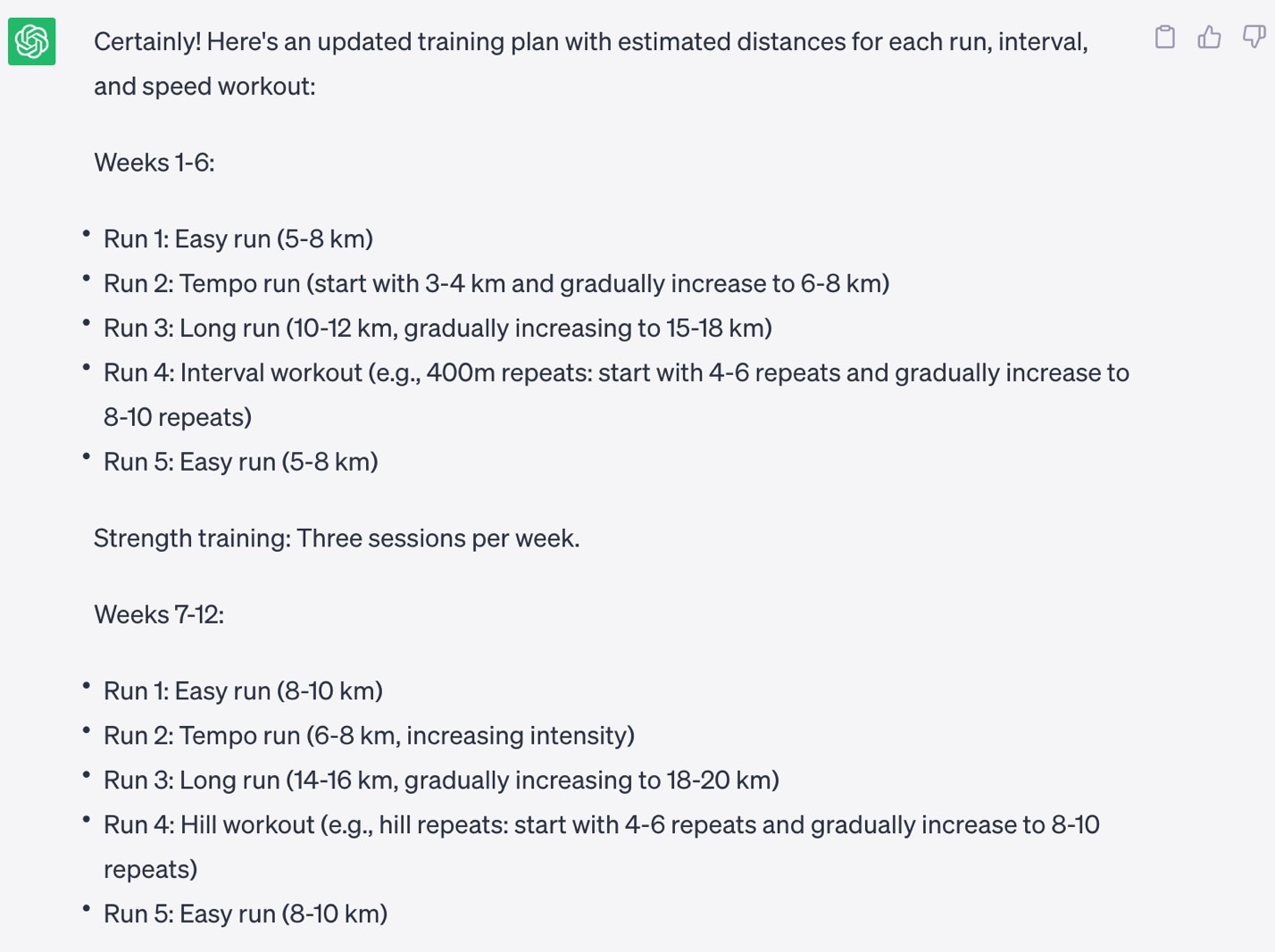
Later during my training, I asked for a more detailed interval workout plan. And did the same with the hill-climb workouts.
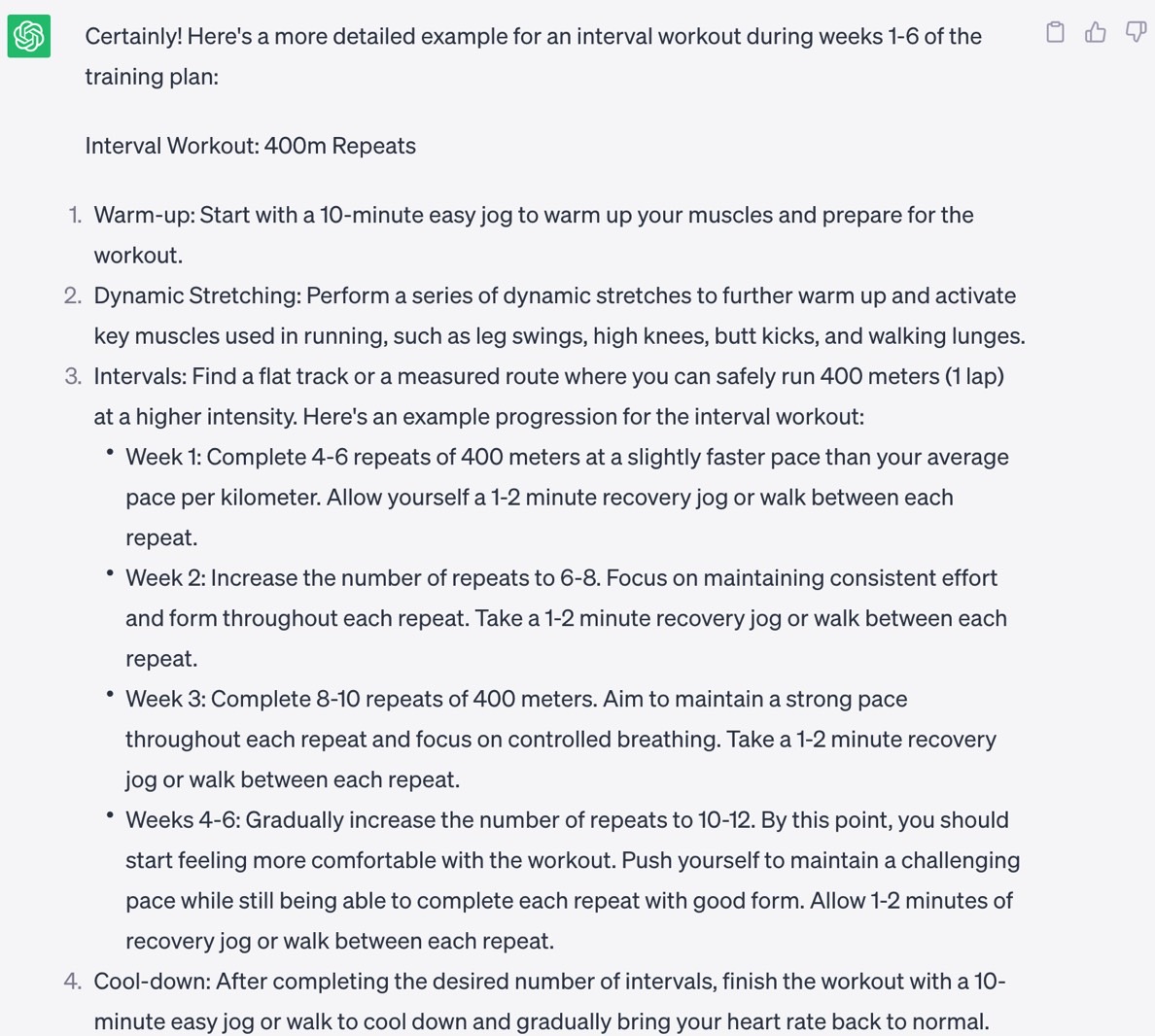
Remember to eat and hydrate
You can't get to that half-marathon goal without proper nutrition and hydration. As you see in my initial ChatGPT prompt, I asked for a varied 7-day meal plan to go along with my running plan. ChatGPT delivered a first reply, but I wasn't happy with it.
You might have guessed it, but I needed more details. So I told the generative AI to revise his meal plan to include calorie counts for each of those meals.
ChatGPT happily obliged.
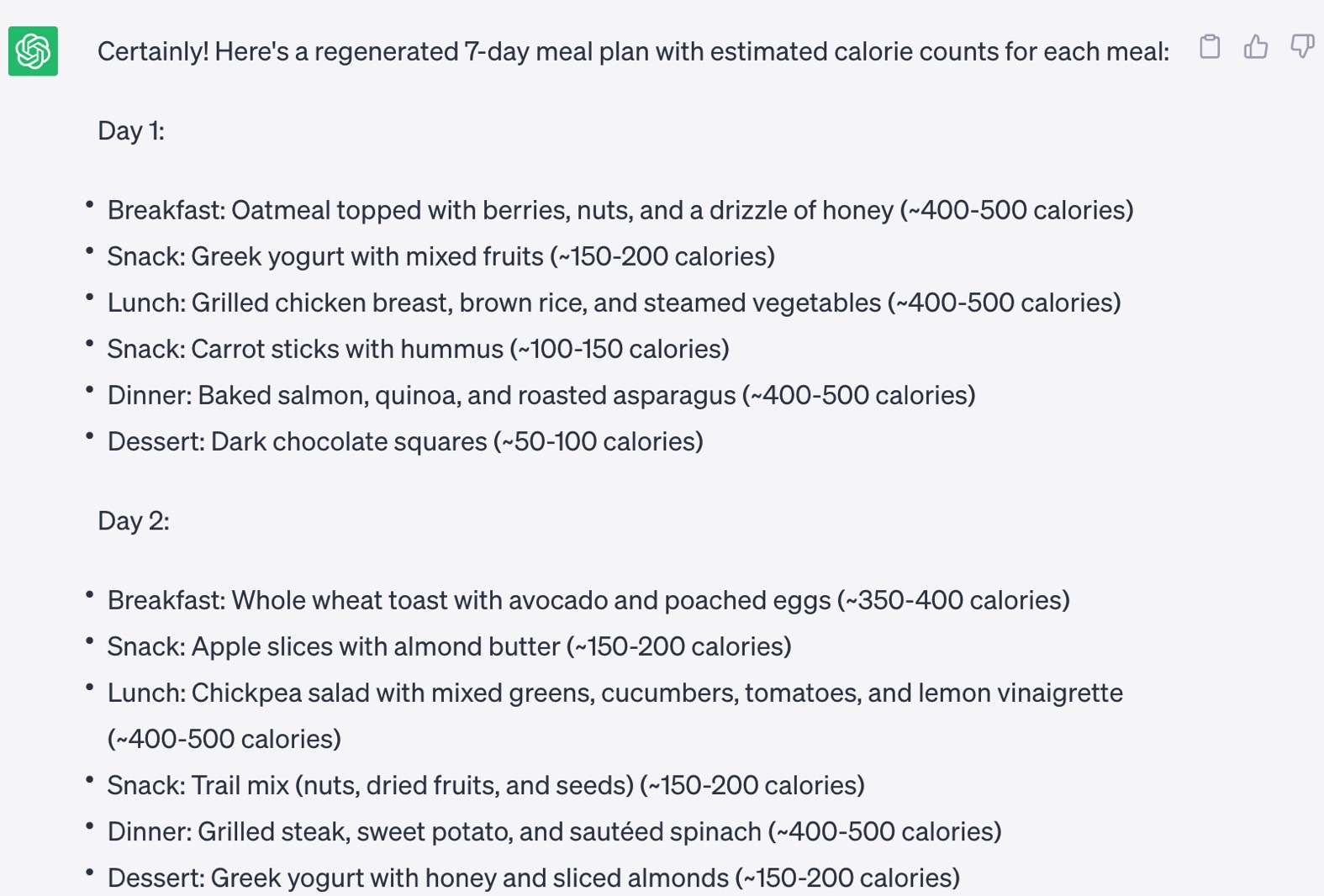
I then realized that I'd be increasing the effort steadily, so I didn't want to lose weight unnecessarily. I wanted to maintain my current weight while increasing the distance I'd put in each week. That meant consuming more calories as I approached the half-marathon race. ChatGPT complied again.
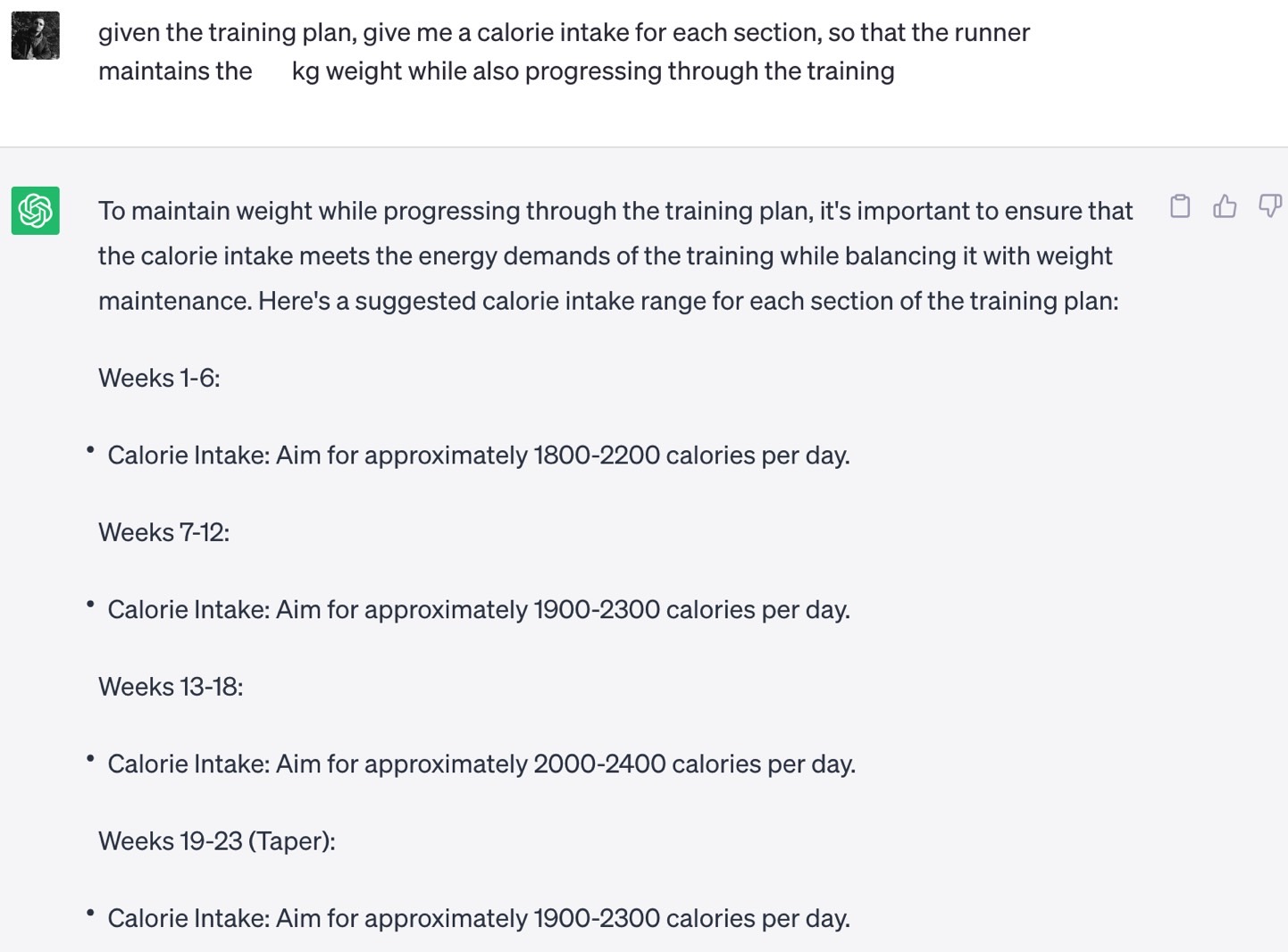
What I didn't tell ChatGPT was that I would also get periodic blood work done to ensure I was within the proper parameters. I might feel healthy, but I want the data to show that I am.
My progress has been better than expected
I've now been using ChatGPT's training regimen for nearly two months. I mostly stuck to the schedule ChatGPT offered, although there were weeks where I didn't complete 5 runs in 7 days. You should listen to your body and give it time to recover.
I "talked" to ChatGPT again to optimize my rests and take into account my fitness and strength training sessions. That produced a training routine that included 4 or 5 weekly runs.
Life also tends to get in the way, so you have to account for that, too, when planning training for a half-marathon.
That said, I ran some 120 km (74.5 miles) in June and walked an additional 68 km (42.25 miles). In July, I topped 140 km (87 miles) running and walked some 86 km (53 miles).
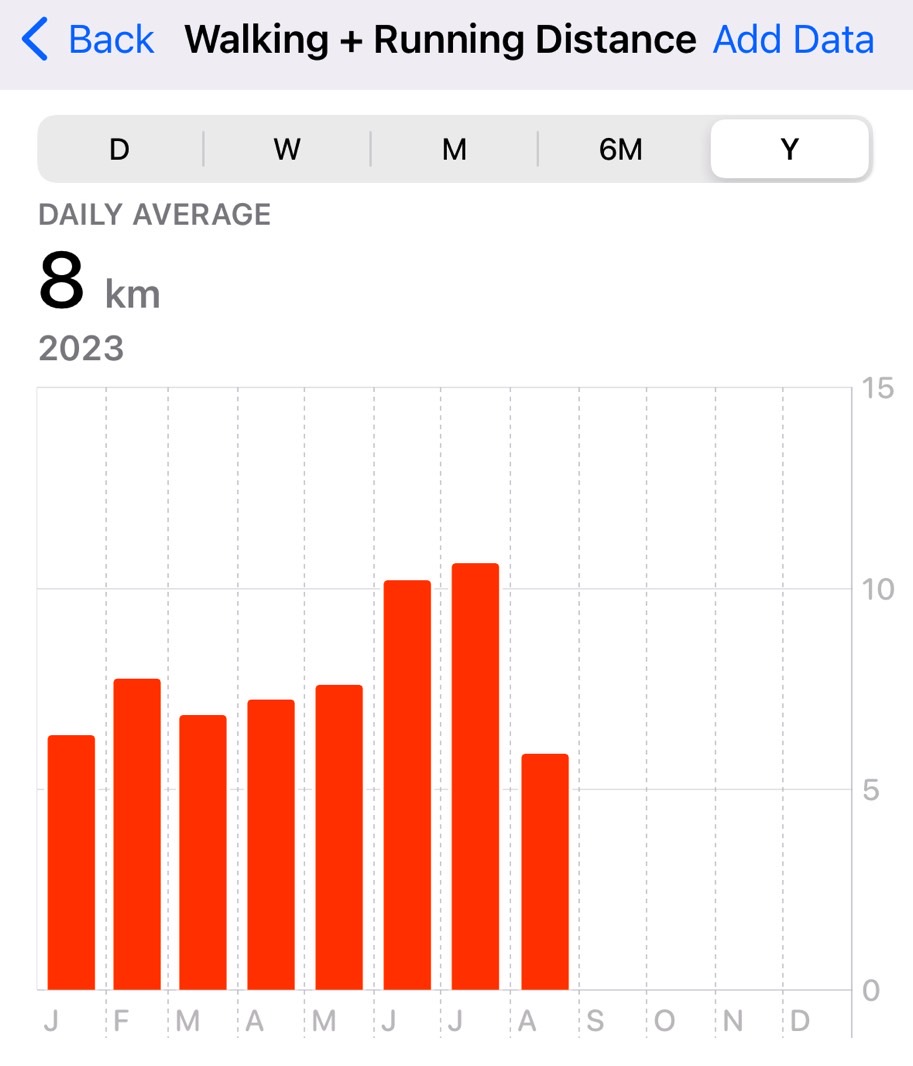
My 5K pace has improved significantly compared to before I started using ChatGPT in my training. Put differently, I can run 15K at my old 5K pace from before ChatGPT, which is a massive improvement. Also, I'm running faster than I did when I trained for half-marathons without tech like ChatGPT. And I'm eight years older.
I use an Apple Watch to rigorously track my progress and compare it with previous stats. The smartwatch also tells me my average walking heart rate has improved in the past two months. Also, my cardio fitness is better than ever, and it's still climbing.
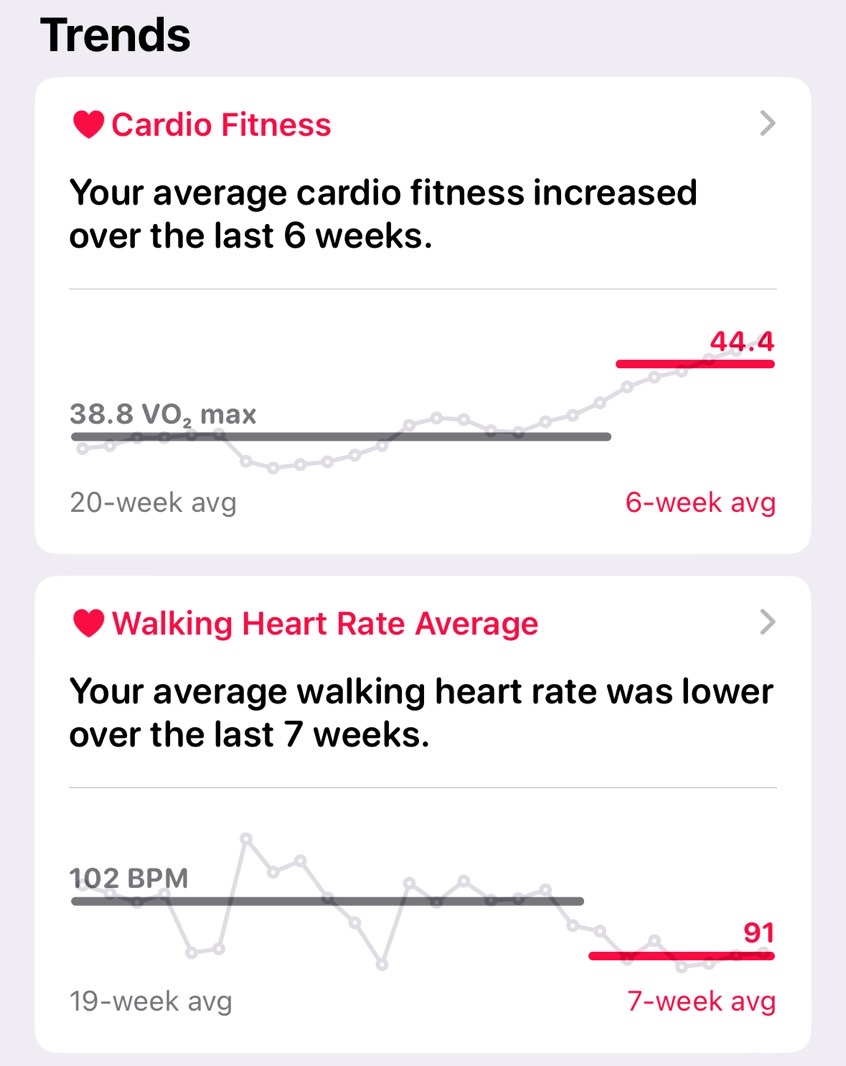
I'm also keeping my weight in check and monitoring my blood work in addition to the vitals that the Watch can track.
There’s always room for improvement
The summer heat waves have certainly thrown a wrench into my running routine. I've had to adjust my running workouts to avoid the sun, which puts additional pressure on the body. That means skipping a run here and there. Or I'll do a fitness/strength workout instead of a run.
Also, I haven't stuck to ChatGPT's meal plan, though I eat a balanced diet, and my weight progress seems to reflect that.
But I'm halfway through my ChatGPT half-marathon program. I plan to complete it and run the best possible race I can.
I've also broken the shoes I bought with ChatGPT's help. That was unexpected. Those shoes were certainly comfortable, and they must have played a role in my improvement. A few customer support chats later, I've gotten a replacement, which will hopefully get me through the race without breaking again. I'm also building an increasingly longer list of running shoes to buy.
Finally, I'm also keeping those earlier ChatGPT chats active. I can always come back with new questions, and ChatGPT will have the context of earlier conversations to reply accordingly.
Will I run a full marathon with ChatGPT?
I'm already contemplating using ChatGPT to progress to running a full marathon. I've never done that. Again, it's more a mind thing than a body thing. I'll certainly ask ChatGPT for help and see if the training plan fits with the rest of my schedule.
But after seeing these amazing improvements in training with ChatGPT for a half-marathon, I'm curious to see the training regimen for a 42K race.
